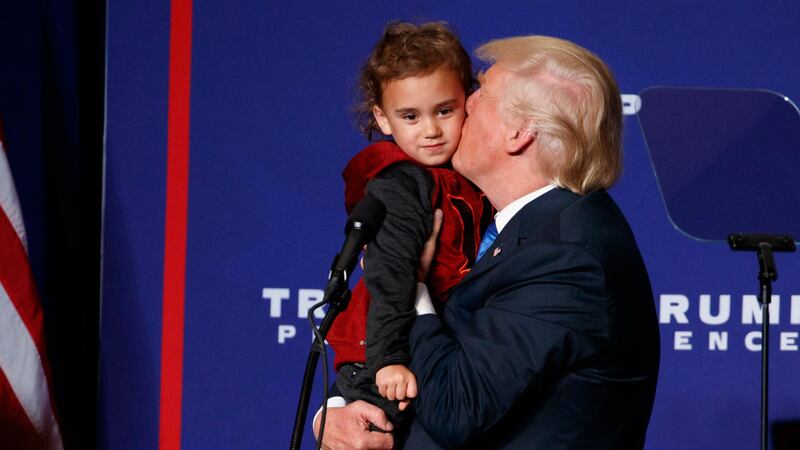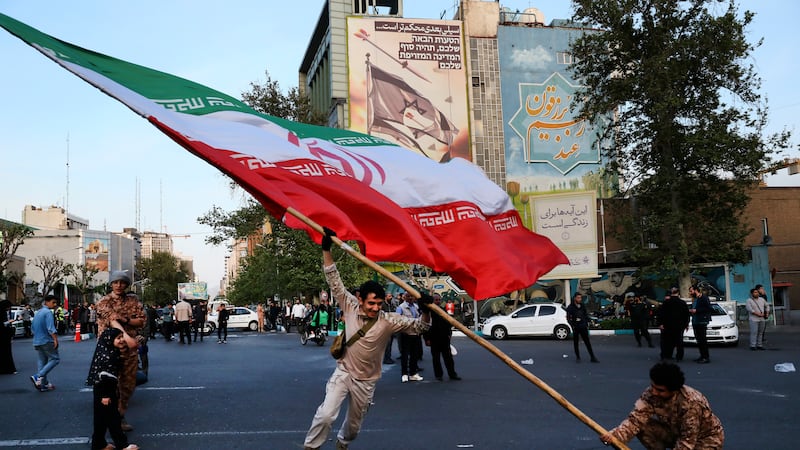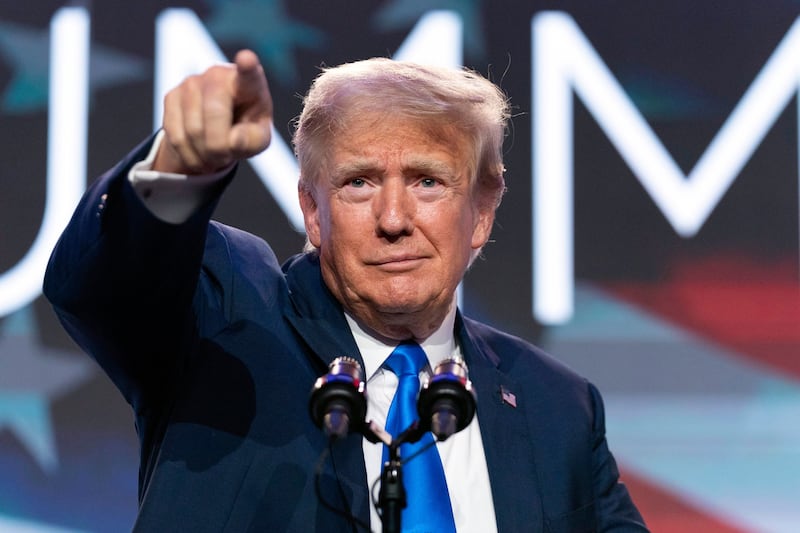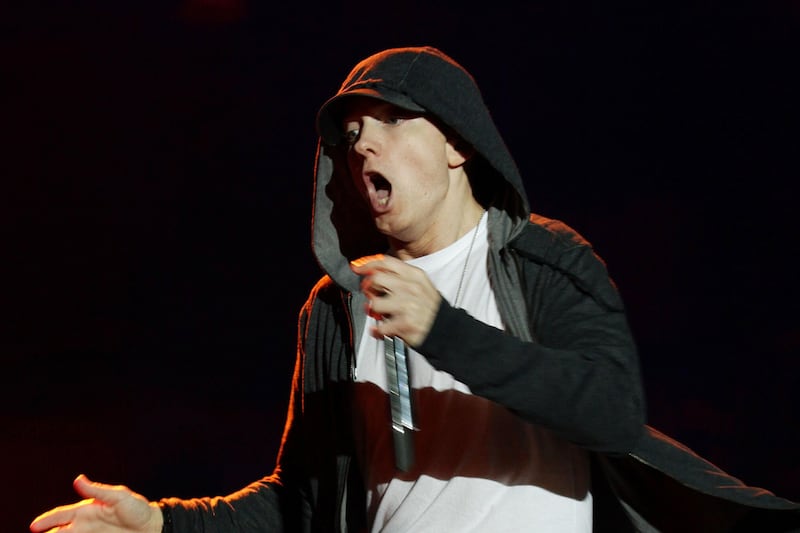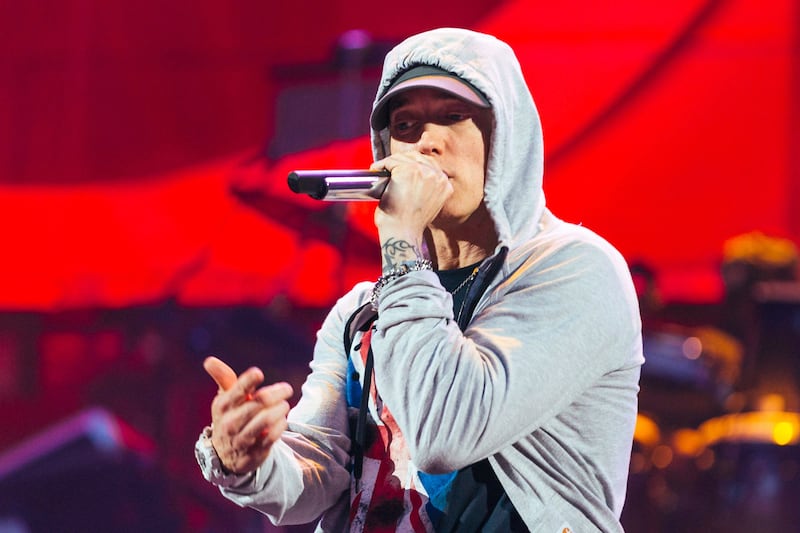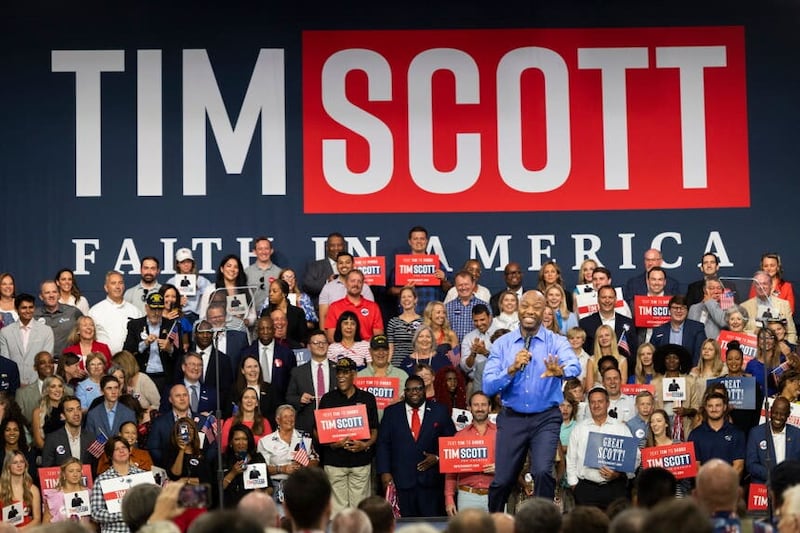DONALD Trump has vowed to "end government corruption" if he is elected to the White House.
The Republican US presidential nominee's comments, made at a rowdy Wisconsin rally, came as he sought to draw attention to the revelations contained in a rolling stream of hacked emails that contain unflattering information about his Democrat rival Hillary Clinton.
Mr Trump says he wants to ban executive branch officials from lobbying the government for five years after they leave the White House and wants Congress to do the same for members and their staffs.
He also wants to expand the definition of lobbyist and is calling for a lifetime ban on senior executive branch officials lobbying on behalf of foreign governments.
Mr Trump is insisting voter fraud does indeed pose a significant threat to the integrity of the US electoral system, claiming the November 8 election could be rigged "at the polling booths" despite a lack of evidence and experts' insistence to the contrary.
Speaking at the rally in Green Bay, he doubled down on his widely condemned attempts to undermine the election's outcome, which are unprecedented in modern presidential politics.
"They even want to try to rig the election at the polling booths. And believe me, there's a lot going on," he said.
"Do you ever hear these people? They say there's nothing's going on. People that have died 10 years ago are still voting. Illegal immigrants are voting. I mean, where are the street smarts of some of these politicians?"
"So many cities are corrupt and voter fraud is very, very common."
For days, Mr Trump's allies have been insisting that the billionaire's escalating complaints about a "rigged" election were meant to refer to what they see as the media's bias against him and preference for Mrs Clinton.
But Mr Trump, who has repeatedly asked his supporters to keep an eye out for fraud on election day and make sure things are on "the up-and-up," has made clear he also has concerns about the integrity of the voting system - especially in cities like Philadelphia, with large minority populations.
"Of course there is large-scale voter fraud happening on and before election day," he tweeted earlier.
"Why do Republican leaders deny what is going on? So naive."
At his rally, which was interrupted repeatedly by protesters, Mr Trump cited research from the Pew Centre that had been featured in a report meant to highlight antiquated voter registration systems "plagued with errors and inefficiencies".
The 2012 study found that approximately 24 million - or one of every eight - voter registrations were no longer valid or significantly inaccurate. It also found that more than 1.8 million dead people were listed as voters and that about 2.75 million people were registered in more than one state.
But the report cited no evidence that those errors had contributed to any significant voter fraud. Instead, it pointed to estimates that at least 51 million US citizens are eligible but not registered to vote.
Mr Trump also cited a controversial 2014 opinion piece in The Washington Post by a group of professors at Old Dominion University promoting their research concluding that "enough" non-citizens had voted in recent elections that their participation could plausibly change the outcome of close elections.
Their claims include the assertion that because non-citizens tend to favour Democrats, their votes could have been responsible for Barack Obama's 2008 victory in North Carolina.
There is no evidence the latter is the case - and the article spawned so much backlash over its methods and conclusions that the authors were prompted to issue a follow-up defence.
Most experts say voter fraud is extremely rare in the US, with one study by a Loyola Law School professor finding just 31 known cases of impersonation fraud out of one billion votes cast in US elections between 2000 and 2014.
Meanwhile Mrs Clinton is advancing into states the Democrats have not won in decades, in a push to help her party win back control of Congress.
There's a new two million-dollar effort in Arizona, including a campaign stop in Phoenix by first lady Michelle Obama, one of Mrs Clinton's most effective surrogates. An additional million dollars is going into efforts in Missouri and Indiana, both states with competitive Senate races, a small amount of TV time is being bought in Texas and media appearances are scheduled in Utah.
But Mrs Clinton is facing fresh revelations about her use of a private server as US secretary of state and hacked emails from a top campaign official's personal account.
FBI records released on Monday show that a senior State Department official unsuccessfully sought to lower the classification level of an email found on the server, a move Mr Trump's campaign labelled collusion and Mr Trump described as "a criminal act" worse than Watergate.
"Donald Trump is becoming more unhinged by the day, and that is increasing prospects for Democrats further down the ballot," Clinton campaign manager Robby Mook, who cited early voting and registration numbers to predict record voter turnout, said.
